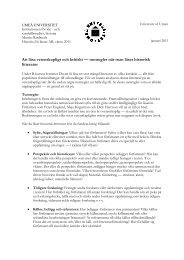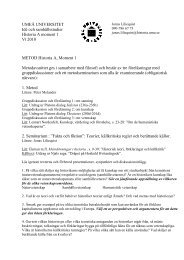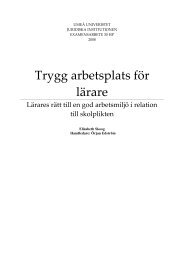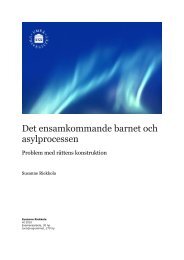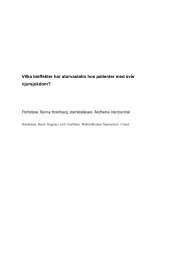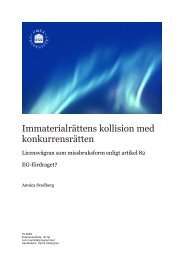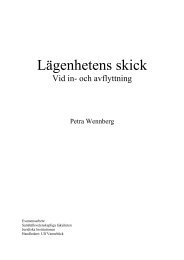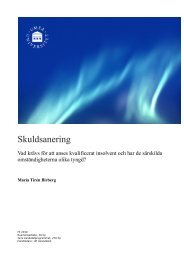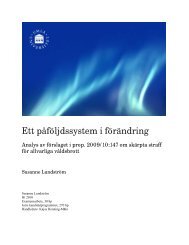Kamilla Atmarsson - Våga blåsa i visslan - Juridiska institutionen ...
Kamilla Atmarsson - Våga blåsa i visslan - Juridiska institutionen ...
Kamilla Atmarsson - Våga blåsa i visslan - Juridiska institutionen ...
Create successful ePaper yourself
Turn your PDF publications into a flip-book with our unique Google optimized e-Paper software.
Executive summary<br />
A whistleblower is a person who informs, warns or otherwise contributes to exposing<br />
irregularities within a company, a public agency or another organization. Whistleblowing is a<br />
way to reduce corruption and dangerous situations, through the disclosure of illegal,<br />
dangerous or unethical behavior conducted by public or private organizations.<br />
To act as a whistleblower is risky. Those who dare to whistle might loose their jobs, be<br />
excluded and ostracized, be prosecuted for violating laws or worker's agreements, and in<br />
extreme cases suffer physical abuse. Thus, a protection for whistleblowers – which ensures<br />
that they have the courage to actually whistle – is required. In Sweden, such protection is not<br />
regulated in any specific law, but provided for in the Constitution, labor law and in the<br />
business industry's self-regulatory codes and policy documents. There are also some European<br />
and international instruments that affect the Swedish legislation.<br />
The main purpose of this thesis is to analyze if a stronger protection for whistleblowers is<br />
called for and, if so, if this should be provided for in a legal act or through self-regulation in<br />
business codes and similar instruments. The findings are that there is a need for an enhanced<br />
whistleblower protection in Sweden, since the current legal regulation does not offer adequate<br />
protection. The best way to go about this is by adopting a uniform legal act which inter alia<br />
ensures whistleblowers the right to anonymous communication channels in both the private<br />
and public sector, stipulates criminal penalties for employers that do not follow these rules,<br />
provides relevant legislative provisions (eg. labor laws and constitutional protection) and<br />
provides for regulatory bodies. The proposed legislation should be supplemented by a self-<br />
regulatory code for the business industry, in which the world business organization ICC may<br />
be appointed as trustee of the code. In addition, the law should be complemented by<br />
regulations on how the public sector's anonymous communication channels be designed and<br />
conducted. By doing so, an anonymous communication channel is always ensured, while the<br />
protection can be tailored to the specific organization's needs and possibilities. In addition, the<br />
protection can be specified in a different way than through legislation which enables it to be<br />
revised without unnecessary delay when a change is warranted.



